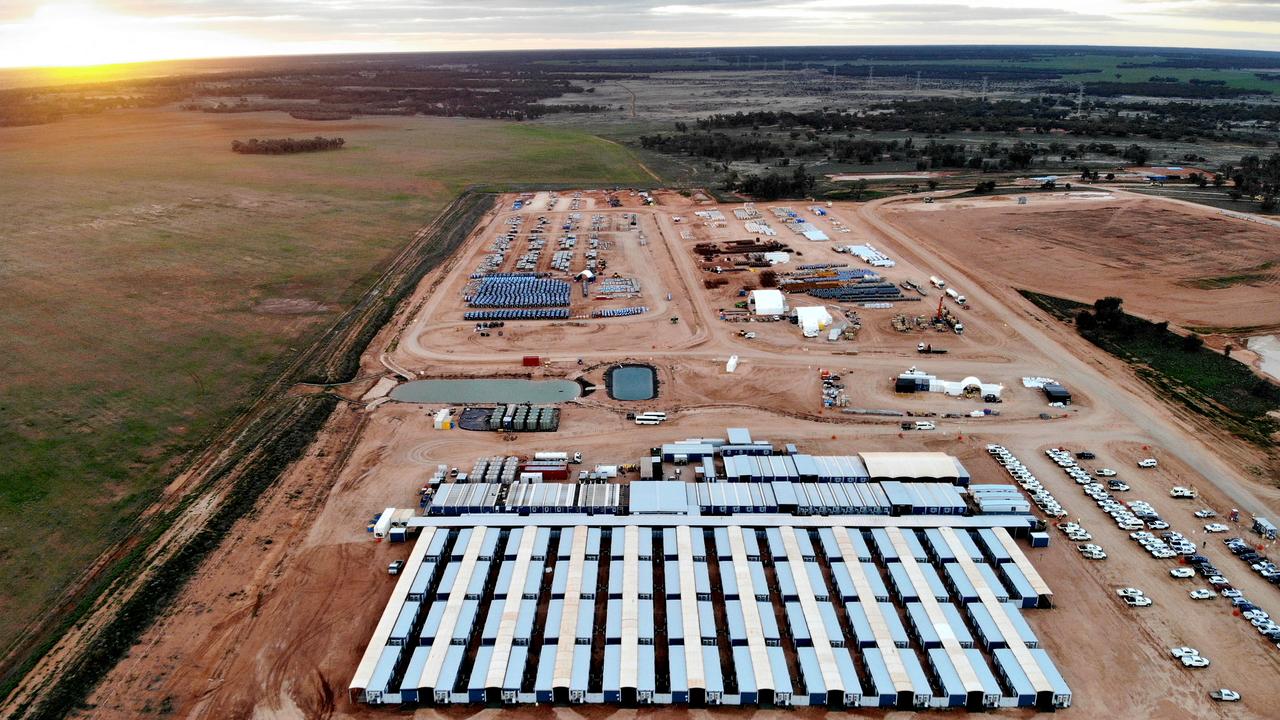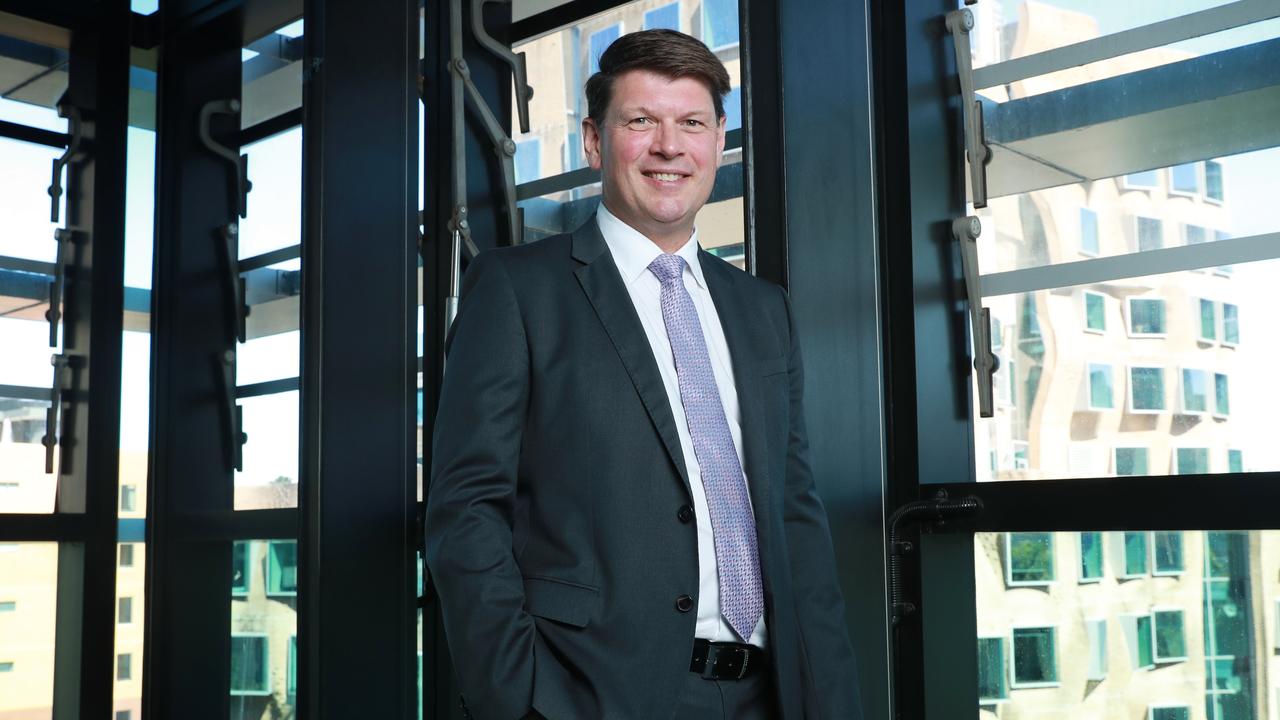Transgrid boss Brett Redman says renewables rollout requires Olympics-style co-ordination
Transgrid boss Brett Redman has told the Australian Energy Week conference that ‘speed of execution’ of approvals was more important than policy changes.

Energy industry leaders say Australia needs to pick up the pace on the renewables rollout to meet emissions targets, tipping project approval timelines as the key issue.
But amid a fresh wave of political warring over energy policy, energy industry chief executives say that execution, not policy tinkering, was the key to rolling out transmission infrastructure and renewable energy generation.
Transmission giant Transgrid has been given the job of rolling out infrastructure developments to link wind and solar generation to the east coast grid, but has faced both local and political opposition to building new lines across NSW, South Australia and Victoria.
Speaking at the annual Australian Energy Week conference in Melbourne on Wednesday, Transgrid boss Brett Redman said the “speed of execution” of approvals was more important than policy changes.
“I wouldn’t advocate a different policy. I’d advocate that we execute better. It’s how we execute what’s there and the stability of the rules as well,” he said.
“But what you find is right across the spectrum, you’ve got to deal with lots and lots of departments and statutory authorities to progress major projects. They struggle to co-ordinate with each other and – as a generalisation – they’re also overwhelmed with the complexity and the scale of what they need to process.”

ENGIE Australia chief executive Rik De Buyserie said permitting and community acceptance of renewable energy projects were the biggest barrier to the faster rollout of renewable energy.
“The biggest challenges that we have is grid connection, permitting and community acceptance – because everybody likes green energy, but nobody wants it in their backyard,” he said.
Mr De Buyserie said ENGIE’s experience suggested developers needed to try to spread the benefits of new infrastructure to broader local communities, and not just landowners.
“One recent example on how we try to overcome that or to win support for our project is an initiative we’ve launched for a new wind farm that we are developing, where thanks to our retail arm we are able to give a rebate of $1000 a year on their electricity,” he said. “The aim we have there is to counter the criticism that only a couple of neighbours are benefiting from this transition, and not to divide the community.”
McKinsey partner Victor Finkel told the conference the consulting firm’s modelling suggested Australia would need to attract about $200bn in capital to invest in transmission lines and renewable generation by 2035 to keep the country on track for net zero by 2050.
But Mr Finkel said the figure could be brought down with a concerted approach to planning, streamlined project approvals, smart management, and speedy deployment of technology when it made commercial sense.
“In a sample of power projects we’ve looked at globally, the average overrun was 50 per cent on both schedule and cost,” he said.
“But the good news is that we know companies that really invest in building project delivery muscle can do much better. It’s possible to reduce estimated project costs by 10 to 25 per cent, which if applied across the whole system that we’re talking about would save $20bn to $70bn.
“What does this require in practice? First, a more hands on role in many cases for owners and developers. Moving away from arm’s length fixed price contracts with engineering procurement and construction firms and towards a more engaged approach, where we align objectives and incentives to build the capabilities in house to make the continuous decisions that are needed.”
Mr Redman said project approvals could be improved by running them in parallel, not sequentially, suggesting mega projects in energy should be considered in the same light as organising the Olympic Games.
Originally published as Transgrid boss Brett Redman says renewables rollout requires Olympics-style co-ordination



